Coffee has been one of those things that is constantly swinging from being beneficial, to being the worst thing you can drink for your health. One minute we’re talking about how it’s full of antioxidants and cognitive boosting benefits. The next, it’s being blamed for everything from anxiety to acne. So, what’s the truth? If you’re clutching your iced oat latte in fear that you need to force feed yourself matcha, don’t panic I’m not here to tell you to give up your beloved caffeine fix. Instead, the answer to ‘Does coffee make acne worse?’ is more of a ‘it depends’.
coffee, why we love it
Coffee is more than just a drink for most of us. It’s a ritual, part of our daily routines. Something that gets us ready for the day. Whether you’re grabbing coffee on the way to work, catching up with friends at your favourite coffee shop, or indulging in a slow Sunday morning with a flat white. Coffee is deeply ingrained in our social lives. It’s also something that we’ve been drinking for years, across different countries and continents. So, is it possible that something we’ve enjoyed for so long, could really be that bad?
Let’s start with the good!
Before we get into whether coffee makes acne worse, let’s start with the positives, because there are plenty!
The benefits of coffee
Polyphenols are chemicals found in plants which essentially work like antioxidants. They provide us with health benefits and help mop up any damage that can happen to our bodies. Some of the polyphenols found in coffee include caffeine (the one most of us know), chlorogenic acid, diterpenes and trigonelline. Coffee also contains vitamins and minerals such as b vitamins.
These antioxidants have a few benefits for our whole body. In fact, they’ve been found to help support metabolism, blood glucose, cardiovascular health, liver function and gut health. They can also support gut health by feeding beneficial bacteria. Since gut health is closely linked to skin health, this means coffee could actually contribute to clearer skin.
Also – health isn’t just about how many antioxidants or health benefits a food or drink has. It’s about connection, joy and happiness. So if meeting with your family members or friends for a coffee on a lunchtime, or weekend, is something that brings you joy – that’s good for your health too! If you’ve been told to completely remove coffee from your life, and now meet up with your friends and feel a bit depressed being forced to drink herbal tea (that you don’t enjoy), is that really the healthiest thing for you? I do think this part of nutrition and wellness is so often missed. We’re so hyper-focused on the vitamins, minerals and antioxidants of a food that we kind of miss the whole point of health and happiness.
Where Coffee Might Go Wrong for Your Skin
While coffee has some amazing benefits, there are a few things that could make it a potential acne trigger, depending on how, when, and what you’re drinking.
How Much Coffee Are You Drinking?
Let’s start with the amount of coffee you’re drinking. Drinking 1-2 cups per day is generally a good amount that balances coffee’s benefits without overloading your system. But if coffee is the only thing you’re drinking all day, you might be setting yourself up for dehydration, stress, anxiety and some gut issues.
Because caffeine can increase gut motility, you might be running to the toilet more often than you’d like. Also, hydration is key for healthy skin. So make sure you’re also drinking plenty of water alongside caffeinated drinks. If you’re drinking more than 4 cups per day, try reducing it slowly by one until you get yourself to about 2 per day.
Caffeine & Sleep Disruptions
Caffeine is a stimulant that blocks adenosine, the chemical that makes you feel sleepy. That’s why coffee perks you up.
But here’s where it can be an issue. Caffeine has a half-life of about 5-7 hours, meaning that if you have a coffee at 3 PM, half of that caffeine is still in your system by 9 PM.
And I have clients that tell me all the time ‘I drink caffeine before bed and it doesn’t affect my sleep’. Now, you might think it’s having no effect, but are you waking up feeling refreshed? Or do you wake up feeling tired and hitting the snooze button? You might be getting enough sleep (quantity), but it might not be restorative sleep (quality). Both low quantity and quality sleep can lead to increased cortisol (the stress hormone), which can contribute to acne flare-ups. Lack of sleep also means slower skin healing, because our body does most of its repair work when we sleep.
If you’re sensitive to caffeine, try having your last cup before 2pm to protect your sleep quality. If you need to have a coffee later on, try decaf. But just be mindful that decaf still has a small amount of caffeine in it.
Coffee on an Empty Stomach?
Drinking coffee first thing in the morning, especially without food, might leave you feeling a bit anxious, irritated or shaky. This is due to how coffee acts as a stimulant and increases cortisol. Doing this on the odd day won’t cause instant, huge cystic breakouts, but consistently elevated cortisol can trigger oil production, which might lead to acne and breakouts over time.
If you drink coffee on a daily basis, aim to pair your coffee with a balanced meal that includes protein, healthy fats, and fibre. Think eggs and avocado toast, Greek yoghurt with nuts, or a smoothie with protein powder. I know a lot of people will say you have to cut coffee completely, you don’t. It’s about drinking it in a way that supports your body instead of making it a bit more stressed!
It’s Not the Coffee… It’s the Sugar
If your go-to order is a salted caramel latte with extra vanilla syrup, the real acne culprit might not be the coffee itself, it’s the sugar overload. High sugar intake can spike glucose and insulin levels, increasing oil production and inflammation, both of which are linked to acne. And personally, I’m not a fan of artificial sweeteners either – I don’t think they’re helping us get used to the natural (and beneficial) bitter flavours in food.
This doesn’t mean you can never have these drinks. But I do want you to think of them as dessert. And is cake breakfast a healthy way to start every day? If you can, try to wean yourself off the super-sweetened and flavoured version of coffee.
Coffee Quality Matters
Not all coffee is created equal. The way that coffee is roasted and processed may affect the antioxidants in the coffee. Exhale Coffee is a brand of coffee, which is free from mould, pesticides, and processed in a way to maintain high levels of antioxidants, minerals and all the other beneficial compounds in coffee. (No affiliate link, just sharing a brand I love). I also prefer speciality blends that come from roasters who really care about coffee quality. And even if this wasn’t about health, I think it’s good to support your local businesses. The Coffee Bar Collective are my favourite in Birmingham, UK.
Genetics & Caffeine Sensitivity
Did you know that genetics play a role in how well you tolerate caffeine? Some people genetically process and detox caffeine quickly, while others metabolise it slowly. If you’re in the latter group, you may be more prone to anxiety, jitters, or an increased heart rate from coffee. If you notice that caffeine makes you feel shaky or overly wired, you might be a slow metaboliser, meaning it might not be the best drink for you health-wise. Or you’ll need to keep your coffee intake to a minimum (closer to 1 cup per day).
Pay attention to how your body reacts. If caffeine makes you anxious, try reducing your intake or switching to a lower-caffeine option like tea, green tea or matcha. These all still have great health benefits.
Should You Cut Out Coffee?
Not necessarily! If you’re wondering if coffee is making your acne worse, I’d run through the steps we’ve discussed before cutting it out completely. Are you having high-sugar caffeinated drinks? Drinking too much coffee in general? Lacking sleep? Work on those first. But if you’re struggling with persistent breakouts, you can do a trial period without coffee to see if your skin improves. You don’t have to quit cold turkey, just switch things up and observe how your body reacts.
Alternative Drinks to Try:
- Matcha or green tea: Contains lower caffeine but is rich in L-theanine, which provides a calmer energy boost without the jitters.
- Herbal teas: Chamomile, nettle, spearmint, and rooibos can support digestion and skin health.
- Water: (I know, so exciting) But hydration is key for glowing skin!
- Turmeric lattes: Anti-inflammatory and caffeine-free, this cosy drink is a great swap in the evenings.
- Cacao hot (or iced) chocolates: Using raw cacao to make chocolate drinks is full of skin-boosting antioxidants, vitamins and minerals.
Let’s Recap – Is coffee causing your acne?
So, does coffee make acne worse? It depends. For some people, coffee is perfectly fine (or even beneficial). For others, it could be a trigger, but it depends on what you’re drinking, how much you’re having, the quality, and if it’s loaded with sugar.
The key is balance. If you love coffee (like me), enjoy it in a way that supports your skin. I’ll have 1 cup in the morning, and maybe 1 cup around 12-1pm. I also switch it up throughout the week and sometimes have coffee-free days, and choose herbal teas or matcha instead. Just be mindful of how you’re drinking it, and listen to your body.
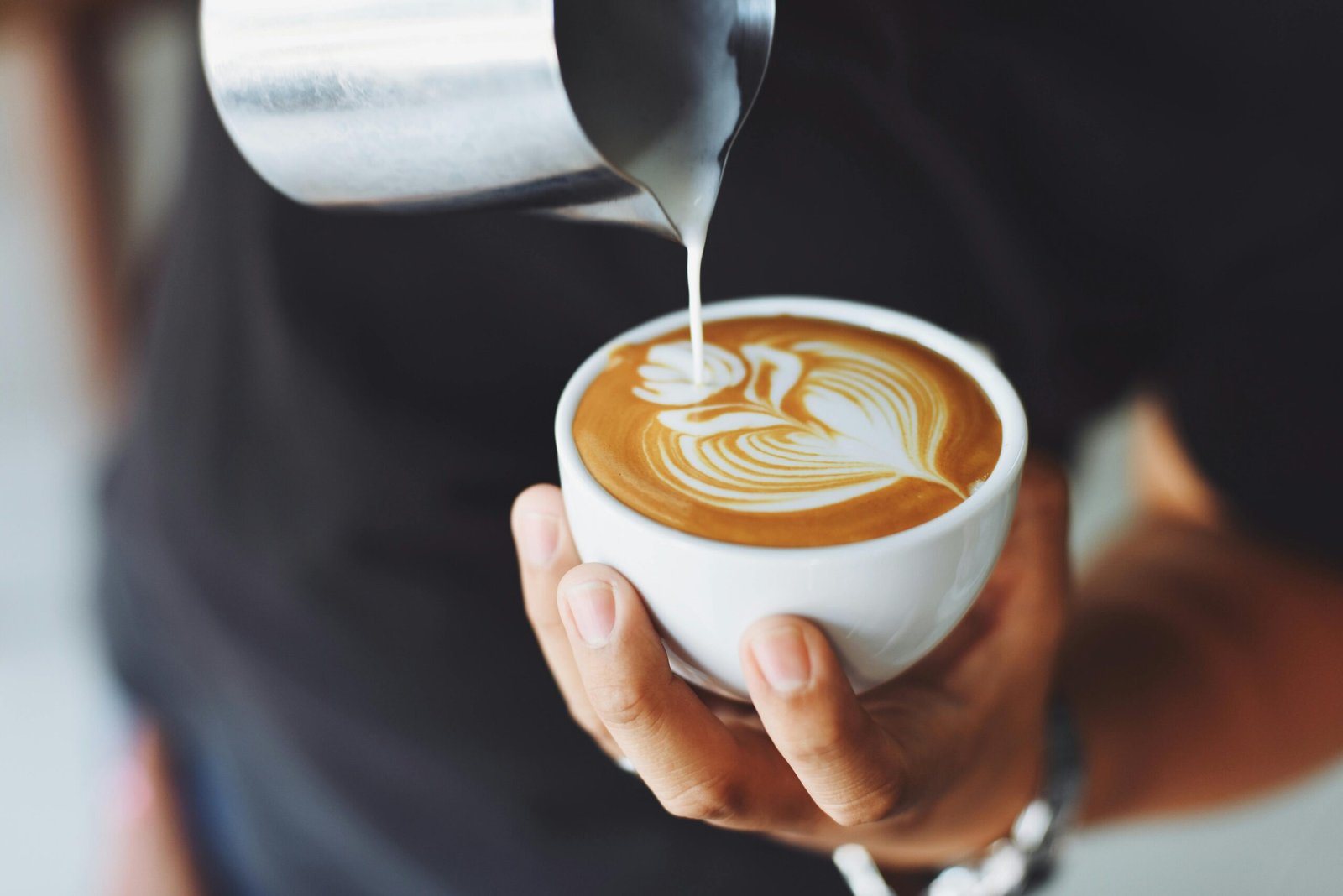
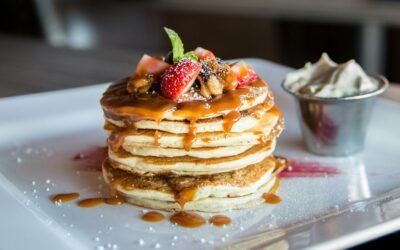
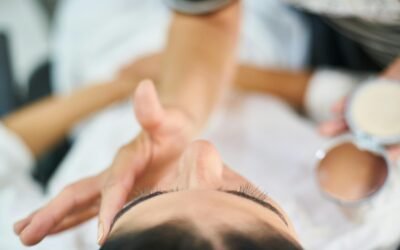
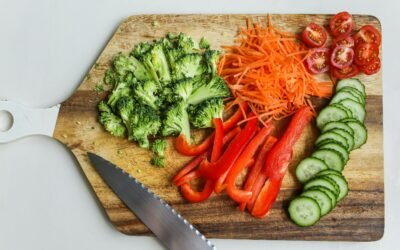
0 Comments